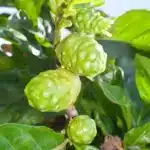
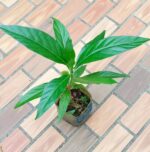
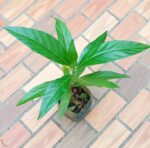

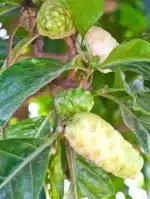

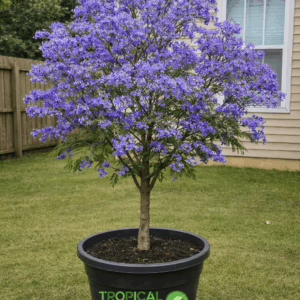

Noni (Morinda citrifolia) Live Fruit Tree 12”-24”
$80.00 Original price was: $80.00.$39.99Current price is: $39.99.
The Noni Fruit Tree, also known as Morinda citrifolia, is a tropical evergreen tree that is native to Southeast Asia, Australia, and the Pacific Islands. The fruit of the Noni tree has a pungent, cheese-like odor and a bitter taste, but it is prized for its many health benefits. In this description, we will discuss how to plant and care for Noni Fruit Trees, and some of the benefits they can provide.
An interesting fact about Noni Fruit is that it has been used for centuries by Polynesian healers for its medicinal properties. Noni Fruit has a long history of use in traditional medicine for treating a wide range of ailments, including digestive problems, skin conditions, and infections. The fruit contains a variety of compounds, including alkaloids, anthraquinones, and polysaccharides, which have been shown to have anti-inflammatory, anti-bacterial, and anti-cancer properties. Noni Fruit is also rich in vitamins and minerals, making it a valuable addition to a healthy diet. Despite its pungent odor and bitter taste, Noni Fruit has gained popularity in recent years as a natural health supplement, and is widely available in the form of capsules, juices, and teas.
Planting Instructions: Noni Fruit Trees are typically propagated from seeds or cuttings. If planting from seed, select a ripe Noni fruit and remove the flesh to expose the seeds. Clean the seeds and plant them in a pot with well-draining soil. Keep the soil moist and place the pot in a warm, sunny location. When the seedlings are several inches tall, transplant them to larger pots or to the ground. If planting from cuttings, select a healthy stem that is at least 6 inches long and has several leaves. Cut the stem at an angle and dip the cut end in rooting hormone. Plant the cutting in a pot with well-draining soil and keep the soil moist. When the cutting has rooted, transplant it to a larger pot or to the ground.
Noni Fruit Trees prefer well-draining, slightly acidic soil that is rich in organic matter. They also require plenty of sunlight and warmth to grow, so be sure to select a sunny location with plenty of space.
Care Instructions: Noni Fruit Trees require regular care and attention to produce a healthy crop of fruit. The tree needs plenty of water and nutrients to grow, so be sure to provide these elements as needed. Here are some tips on how to care for Noni Fruit Trees:
Watering: The tree requires frequent watering, especially during the growing season. Water deeply once or twice a week, making sure to soak the soil to a depth of at least 6 inches. Be careful not to over-water, as this can lead to root rot.
Fertilization: Noni Fruit Trees require plenty of nutrients to grow. Fertilize the tree regularly with a balanced fertilizer, such as a 10-10-10 formula. Apply the fertilizer every 3-4 months during the growing season, making sure to follow the instructions on the package.
Mulching: Mulching can help to retain moisture and nutrients in the soil, as well as control weed growth. Apply a layer of organic mulch around the base of the tree, being careful not to cover the trunk or root flare.
Pruning: Pruning is not usually necessary for Noni Fruit Trees, but you may need to trim back any excess growth that is encroaching on other plants or structures. Trim back any dead or damaged branches to keep the tree healthy and looking its best.
Harvesting: Noni Fruit is typically ready for harvest 8-10 months after planting. To harvest, wait until the fruit is fully ripe and has a yellowish-white color. Gently twist the fruit from the tree or cut it off with a pair of pruning shears. Allow the fruit to ripen fully at room temperature, then store in the refrigerator until ready to eat.
Benefits: Noni Fruit is a valuable source of nutrition and can provide a variety of health benefits. The fruit is high in vitamins, minerals, and antioxidants, making it a great addition to a healthy diet. Noni Fruit is also used in traditional medicine to treat a variety of ailments, from skin conditions to digestive problems. In addition to its medicinal properties, Noni Fruit is also used in various cultural practices around the world. In Polynesia, for example, Noni Fruit has long been used in religious ceremonies and is believed to have spiritual and healing properties.
| Weight | 10 oz |
|---|---|
| Dimensions | 22 × 4 × 4 in |
| Planting Bag + Soil |
Planting bag + Soil ,I have soil and container |

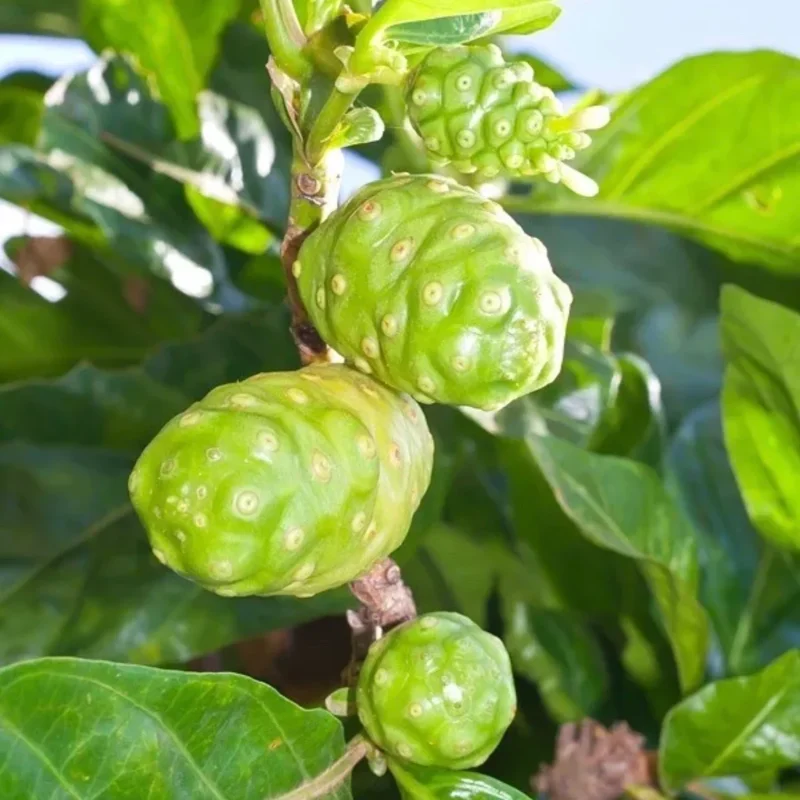


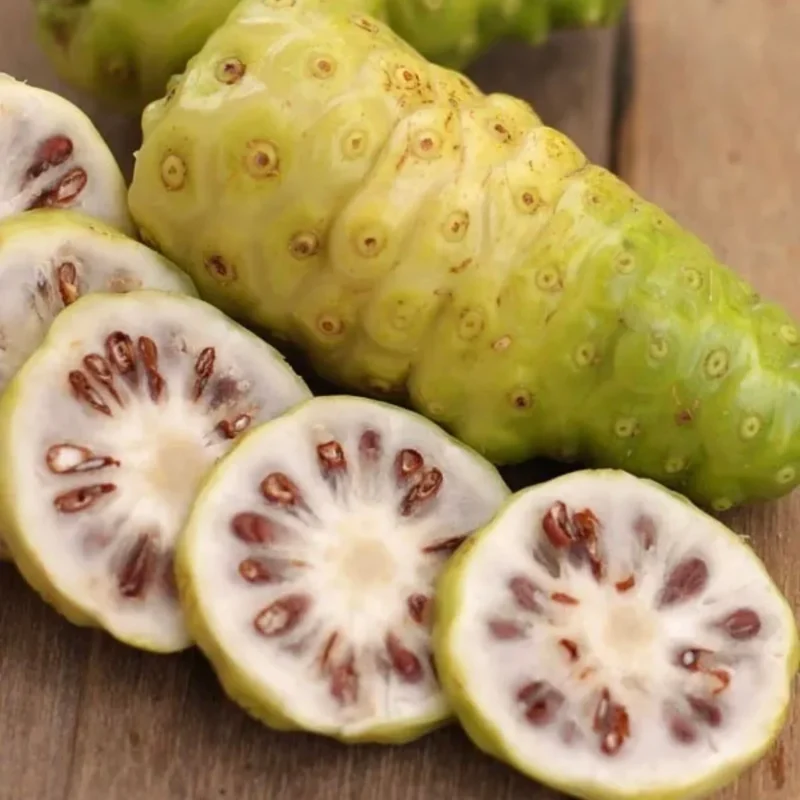
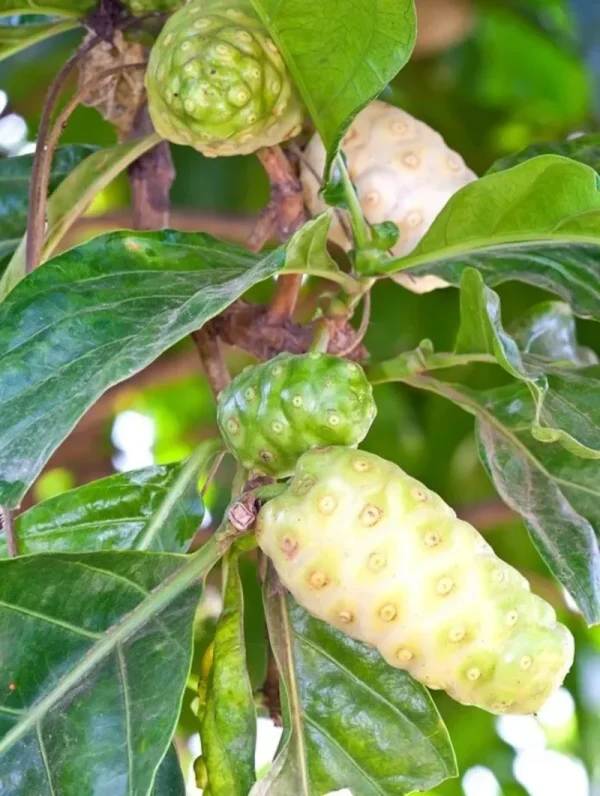
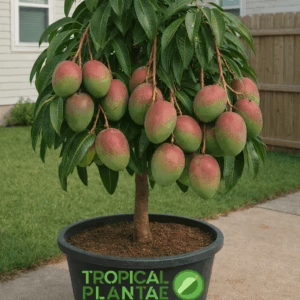
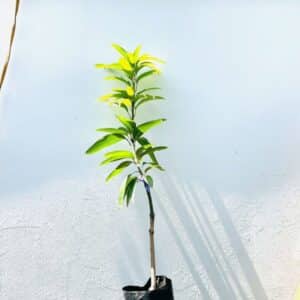


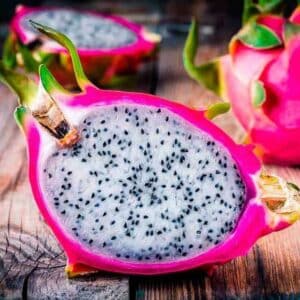
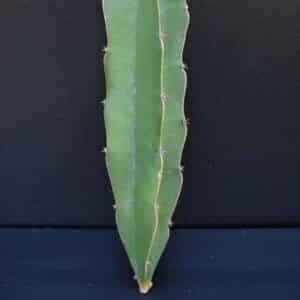










Reviews
There are no reviews yet.